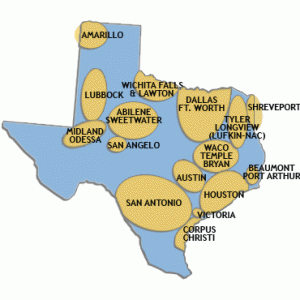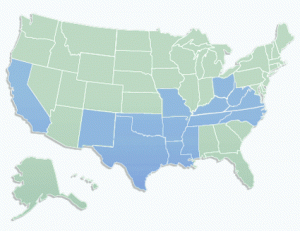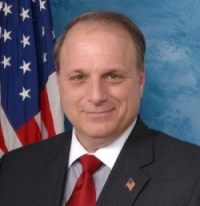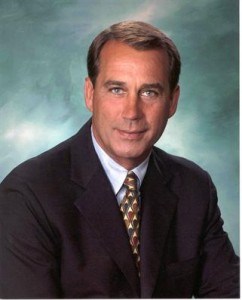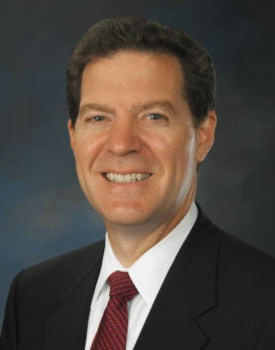 For months now, several groups purporting to represent the interests of minorities have busily been attacking Net Neutrality as beside the point for the poor and unserved consumer who has been left out of the broadband revolution. To varying degrees, several of these groups have been spouting broadband industry talking points to the Federal Communications Commission, members of Congress, and the public at large.
For months now, several groups purporting to represent the interests of minorities have busily been attacking Net Neutrality as beside the point for the poor and unserved consumer who has been left out of the broadband revolution. To varying degrees, several of these groups have been spouting broadband industry talking points to the Federal Communications Commission, members of Congress, and the public at large.
For them, and the profitable broadband industry they indirectly represent, providing access at affordable prices is much more important than making sure providers don’t lord over the network they provide to customers.
Access vs. Openness
Consumers are perplexed by this either/or proposition. For us, both issues are vitally important. In urban, income-challenged areas, affordability is a crucial issue. In rural areas, access to anything resembling broadband comes before worrying about the price. For all concerned, making sure the Internet is not subject to corporate content control, either through direct censorship or through the far-more-common practice of pricing and policy controls, is just as important.
Providers have their self-interest on display when they promote broadband expansion — they want to receive the public dollars available from the broadband stimulus package to pay for that expansion. Of course, every step of the way they have their fingers all over the process, from broadband mapping that protects incumbents from potential competition, defining what constitutes broadband to be as slow and as cheap to provide as possible, to implement usage rationing through Overcharging schemes like usage limits and usage-based billing, and to advocate for public policy that keeps the Money Party of fat profits running as long as possible without oversight.
The entry of minority interest groups into the debate is nothing new. Groups of all kinds, including many who one would think wouldn’t have an opinion on Net Neutrality, are all part of the discussion. Debates ensue, statements are fact-checked, back and forth discussion ensues. What disturbs me is the small handful of groups who are willing to deal the race card when their own views and statements are challenged and they are threatened with losing the argument. Ill-equipped to argue the merits of their case in detail and withstand the scrutiny of fact-checking, some have introduced race into the debate to obfuscate the issues.
While I don’t doubt their sincerity and passion advocating for increased access and affordability, too many of these groups hurt their own case by accepting generous contributions (or advisory board members) from the telecommunications industry. Consumers who witness the near total alignment of views between these groups their corporate benefactors are right to be concerned. Many are asking if those views represent true conviction or “a dollar a holler” advocacy.
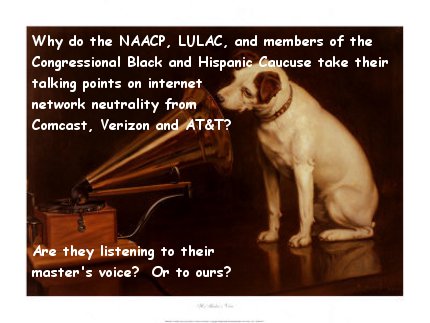
The Black Agenda Report, which created this graphic, ponders the same questions many consumers are asking
As Stop the Cap! documented just a few months ago, Broadband for America is a great example of industry-funded astroturf in action. Large numbers of groups with no apparent connection to the broadband policy debate have found their way onto the roster of members. From a cattle association to a Native American group that also has a burning interest in sharing their views about corporate jet landing rights, the one thing in common with virtually every last one of them was a financial contribution and/or board member working for big cable or telephone companies. Thus far, debating a cattle association has not brought charges of being anti-cow, although I suspect consumers are anti-bull. Debating the merits of Net Neutrality with Native American groups has not brought charges of anti-Native American bias.
Stop the Cap! itself has been on the receiving end of racial rhetoric offered by one of the anti-Net Neutrality advocates out there, Navarrow Wright. Wright is a former corporate executive at Black Entertainment Television, and spends his days now as a self-proclaimed social media and branding expert. Last year, after exiting as CEO of Global Grind, a hip hop social network, Wright launched Maximum Leverage Solutions, which claims to be a full service consulting firm specializing in social media strategy and Internet Consulting.
Just a few months later, Wright suddenly discovered a big interest in the concept of Net Neutrality. While he doesn’t disclose his client list, would it surprise anyone if a telecommunications company hired his services for their own “social media strategy?”
Since last fall, Wright has been generating a mix of provider talking points, Google bashing, and attacking groups that support Net Neutrality. He’s called supporters of an open Internet “digital elites,” the FCC a player of “dangerous games” by ignoring the anti-Net Neutrality public, Free Press a group that wallows “in crazy claims and race-dividing rhetoric,” and tries to connect support for Net Neutrality as somehow representing opposition to increased broadband adoption.
Challenging and debunking his talking points isn’t difficult — they are precisely the same ones the broadband industry has used for several years now. We invited Wright to a full, in-depth discussion about the merits of Net Neutrality and broadband adoption. We even got the discussion started, but that’s exactly where it ended.
Wright is also incredibly defensive about the issue of industry-backed mouthpieces and astroturf efforts in general. Suggesting Wright’s views are inaccurate brings his resume in response, which I suppose was designed to impress readers with suggestions of his built-in expertise, belied by his silence on these issues prior to last year. In Wright’s original comment, he took our comments about economically disadvantaged Americans and made it an issue of color:
Our piece:
The letter represents the groups’ concerns that broadband for many in America is simply not available, especially for the economically disadvantaged. They’ve been swayed by industry propaganda to characterize Net Neutrality as a threat to addressing the digital divide by making service ultimately even more expensive.
His response:
Phil, I know (at least I hope) your intent wasn’t to suggest that people of color have been “swayed by industry propaganda” and aren’t capable of thinking for ourselves on technology issues.
James Rucker, executive director of Color of Change added to the debate in late January, wondering why some civil rights groups are only too willing to support discredited industry talking points and advocate against Net Neutrality.
Rucker discovered the same thing we did. Challenging these groups to explain their positions brings forth repetitious inch-deep talking points and total silence when a rebuttal is offered. If pushed, they obfuscate with claims their views are being disrespected, when in reality they are only being fact checked. Perhaps inconvenient, and even slightly embarrassing, but it’s completely appropriate for consumers to ask whether a conflict of interest exists when a group advocates for the positions of the same industry that is sending them big contributions.
The risk, of course, is to tie an organization’s good name to demonstrably false provider propaganda that some groups are willing to repeat, nearly word for word.
Take for instance Wright’s claim that Net Neutrality will force providers to spend money they would otherwise invest for the benefit of the rural, the downtrodden, and the unserved:
That brings me to the other corporate interests: the Internet service providers. It is the ISPs who must invest in, upgrade, maintain and build out the networks that allow us to receive these cool applications. While I don’t find the network side as sexy as the content side, I do know that we have to have it and ISPs need capital to build and maintain it. So the question remains who is going to pay for maintenance and upgrades to the network if Google gets a free ride? Basic economics tells us that if government requires ISPs to give Google a free ride, there’s only one other place to look for the money: consumers like you and me. What’s more, there are those who want to make it even more unfair by insisting that your big-bandwidth-using neighbor should not have to pay more than you, even if all you want to do is check email and watch some YouTube. Who will all of this hurt the most? Low-income consumers.

The only color that really matters here is green
Wright doesn’t know his American telecom history. Let’s discuss this fiction:
- Bruce Dixon, a writer for the Black Agenda Report says it better than anyone: “Phone companies invented the digital divide more than a century ago as their core business model, preferring to extend service to affluent areas where they could levy premium charges, rather than building networks out to reach everybody.” The cable television industry “franchise” requirement came as a direct result of cable industry redlining, the practice of wiring wealthy neighborhoods for cable while bypassing urban and rural areas deemed “unprofitable.” It’s the same story for broadband, and Net Neutrality is beside the point. The number crunchers look for Return On Investment (ROI) when considering who gets on the right side of the digital divide. If they can’t make a killing on you, they’re not going to provide you service. If you can’t afford their asking price, which is increasing regardless of Net Neutrality, why serve you? Ultimately it is consumers who overpay for these networks, priced well above cost, generating literally billions in profits. Why ruin a good thing with altruistic broadband expansion at a fire sale price?
- Regardless of what Google is doing, providers are seeking new ways to further monetize broadband service, enriching themselves even further. Prices go up even as the costs to provide the service go down. The old chestnut about the next door neighbor being a usage piggy is just more of the same “us vs. them” propaganda from providers who want consumers to fight amongst themselves while they run to the bank with the money. Grandma doesn’t want her broadband service limited either, and she’s way too smart to believe a provider promising dramatic savings for less service from companies that jack up her rates year after year.
- The best way to guarantee affordable access to broadband service is to develop a national broadband plan that provides the same kinds of “lifeline” services already available for economically disadvantaged phone customers, legislative policies that force markets open to additional competition, government oversight to ensure providers are required to provide service throughout their respective service areas, and stimulus or Universal Service Fund assistance for projects that assure access to those who simply will never pass ROI tests. Or we can solve everything by not passing Net Neutrality? Please.
- Google doesn’t have a free ride. First, consumers -pay- providers for connectivity. Ultimately, they are the customers — content producers are not. Nothing prohibits an ISP from offering hosting services to content producers at competitive prices. If Google, Amazon, Netflix, or Hulu want to host their content on servers owned by Verizon, Comcast, Time Warner, or AT&T, nothing stops them. Google pays for its own connectivity to the Internet. Customers pay for accessing it. Now providers want to get paid again. It’s like triple-charging for snail mail – you pay for a stamp to mail it, the person you wrote pays to receive it, and the airline that flew the letter cross country has to pay to transport it.
Remember, it’s the content that drives broadband adoption. ISP’s honestly don’t fret as much about traffic as they claim. They just care whether they can own it, control it, and profit from it. The evidence to back this up comes from cable and phone companies in a big hurry to stream video content over their TV Everywhere projects. Nothing consumes bandwidth like online video, yet there they are enthusiastically embracing it. They have to, because if they don’t control it, it could eventually lead to people dropping their cable TV subscriptions in favor of online viewing.
Wright’s blog promotes another industry favorite — the dreaded phony “exaflood” which threatens to bring chaos and disorder to our online world… unless we totally deregulate broadband and let them do whatever they want to “solve it.” That’s more of the same. We’ve seen the results of that for more than a decade now, and the very digital divide that Wright complains about comes as a direct consequence to letting broadband providers serve, or not serve customers as they please at the prices they want.
Wright and other civil rights groups can throw as many race cards as they like against consumers who see right through their corporate-backed agenda. That’s because consumers know Net Neutrality isn’t an issue of black or white. The only color that really matters here is green.
 Suddenlink broadband customers in Lubbock and Midland, Texas will soon have a new option to boost their broadband speed to 36Mbps. Dubbed MAX36, the new tier leaps over the cable company’s former top broadband speed of 20Mbps. Upload speeds get a boost as well — to 2Mbps.
Suddenlink broadband customers in Lubbock and Midland, Texas will soon have a new option to boost their broadband speed to 36Mbps. Dubbed MAX36, the new tier leaps over the cable company’s former top broadband speed of 20Mbps. Upload speeds get a boost as well — to 2Mbps.

 Subscribe
Subscribe